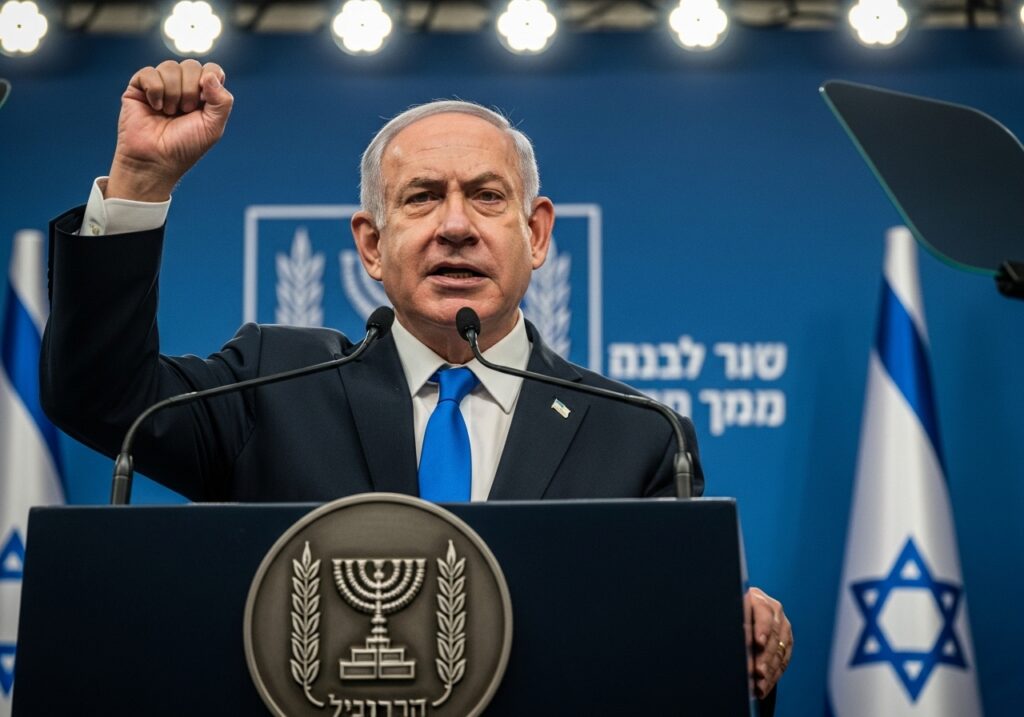Israeli Prime Minister Benjamin Netanyahu has laid out the basic conditions for ending the war in Gaza. While he did not share every detail, key points include stopping rocket attacks on Israel, forcing Hamas and other militant groups to give up their weapons, and returning Israeli hostages still being held in Gaza. These are not small demands, and they show that Israel does not plan to walk away from this war without major changes on the ground.
The world is watching closely. Countries in Europe and the Middle East are calling for a cease-fire, hoping to stop the violence that has already taken thousands of lives. But Netanyahu is making it clear: Israel will not stop fighting until its people are safe and its enemies are disarmed. From a national security standpoint, this war is not just about Gaza. It’s about the broader fight against terrorism and the right of a nation to defend itself.
For the United States, this conflict holds important lessons and risks. First, Hamas is backed by Iran, a longtime enemy of both Israel and the United States. Iran uses groups like Hamas and Hezbollah to expand its power across the Middle East. If Hamas comes out of this war still armed and in charge, Iran will see it as a win. That would make the region more dangerous not just for Israel, but for American allies and interests as well.
Second, the war has already pulled in other players, including Hezbollah in Lebanon and the Houthis in Yemen. American warships and troops have been drawn into the conflict to protect commercial shipping and deter attacks on Israel. Every time the fighting spreads, U.S. forces are at greater risk. This is how small wars can grow into larger regional conflicts if not handled carefully.
President Trump has made clear that America stands with Israel. Unlike the previous administration, which often pressured Israel to hold back, this White House understands that lasting peace requires strength. A cease-fire that leaves Hamas in power would only lead to more wars in the future. That’s why Netanyahu’s conditions—disarmament, no more rocket fire, and the return of hostages—are not just reasonable, they are necessary.
Critics argue that the war is causing too much harm to civilians in Gaza. And it’s true that the suffering there is real. But we must remember who started this war. On October 7, 2023, Hamas launched a brutal surprise attack, killing over 1,200 Israelis and kidnapping hundreds more. This was not a protest or a border clash—it was a planned terrorist assault. Any country in Israel’s position would respond with force.
The challenge now is how to end the war without giving Hamas the chance to rebuild and strike again. That’s the heart of Netanyahu’s message. He is not refusing peace—he is demanding a peace that lasts. And for that to happen, Hamas must be removed from power, its weapons destroyed, and its hostages freed.
For Americans, this war is a reminder that freedom and security are never free. Israel is fighting a battle that could easily be our own. Radical groups like Hamas hate not just Israel, but the West in general. They reject democracy, religious freedom, and the rule of law. If they succeed in Gaza, they will feel emboldened to spread chaos elsewhere.
That’s why U.S. support for Israel is more than just friendship. It’s a matter of national interest. A strong, secure Israel helps keep the Middle East stable. And a stable Middle East means fewer American troops overseas, fewer terror threats at home, and safer global trade routes.
As the fighting continues, Americans should watch carefully. This isn’t just a foreign war—it’s part of a global fight between order and chaos, between freedom and tyranny. And the outcome will shape our world for years to come.

